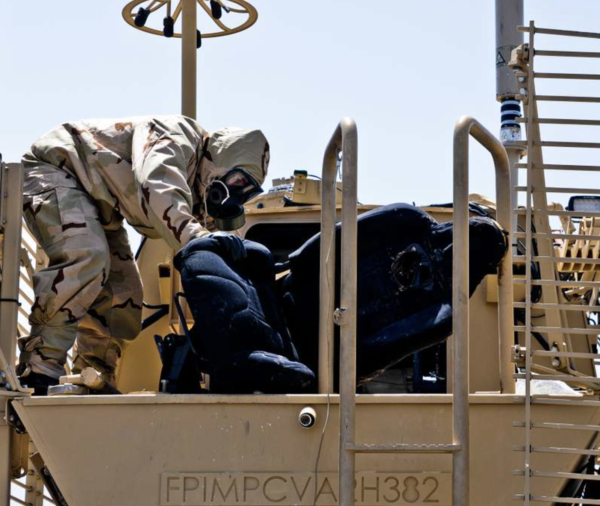
Paratrooper from Task Force 4-25, 4th Brigade Combat Team (Airborne), 25th Infantry Division decontaminates Buffalo MRAP after white phosphorus rocket attack in Afghanistan, 2012. (Photo: Spc. Eric James Estrada)
The Department of Veterans Affairs has initiated a new study to investigate the possible link between three types of cancers and environmental exposures for U.S. troops who served in Iraq, Afghanistan, and other regions.
The study focuses on acute leukemia, chronic leukemia, and multiple myeloma, and their potential connection to service in specific areas like Somalia, Djibouti, Egypt, Jordan, Syria, Yemen, Uzbekistan, and the entire Southwest Asia operational theater.
Although the three conditions are not yet listed as presumptive conditions, meaning they are not automatically considered service-related for expedited claims processing, the VA encourages diagnosed Veterans to apply for VA care and benefits without waiting for the research outcome. Each claim will be evaluated on a case-by-case basis.
The objective of the study is to determine whether these cancers should be categorized as presumptive, which would grant eligible Veterans benefits without needing to prove the direct link between their military service and the disease.
The PACT Act, which went into effect last August, already designates certain conditions, including several types cancers, as presumptive for Veterans exposed to burn pits and other toxic pollutants during their deployments. However, this new research specifically targets acute and chronic leukemias and multiple myeloma.
Since the implementation of the PACT Act, more than 700,000 Veterans have applied for benefits, resulting in over $1.6 billion in disability compensation and benefits distributed to qualified Veterans or their survivors. The VA urges Veterans and survivors to file disability claims under the PACT Act by August 9 to ensure backdated compensation if awarded benefits.
The VA is committed to understanding the potential connection between these deadly conditions and military service. The ongoing scientific research seeks to shed light on whether the cancers should be considered presumptive, ultimately providing Veterans with the care and support they deserve.












